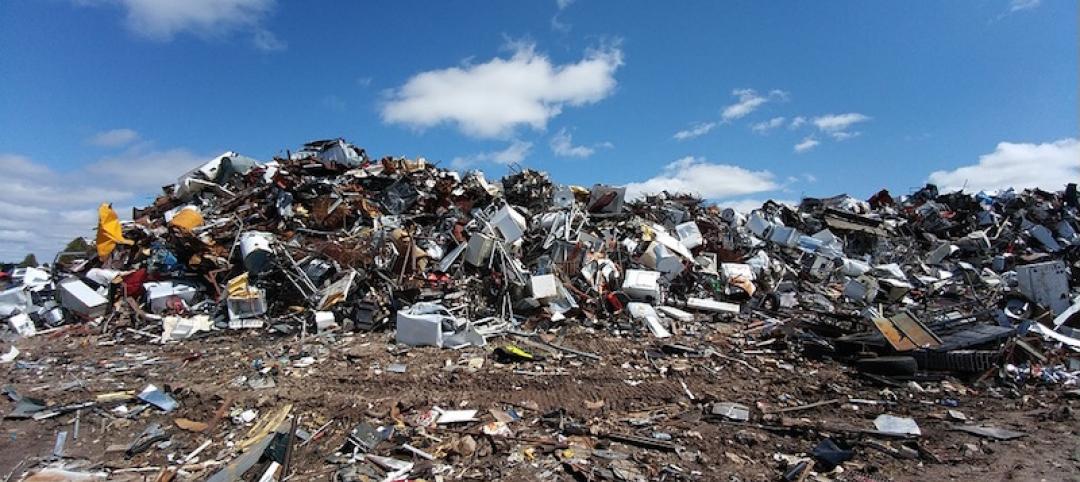The 2021 Hospital Energy and Water Benchmarking Survey by Grumman|Butkus Associates found that U.S. hospitals’ use of fossil fuels is declining since the inception of the annual survey 25 years ago, but electricity use is dipping more slowly.
The average combined Btu/ft2 (electricity plus gas/steam) for participating facilities was 236,743 in this year’s survey, up from 233,491 in 2019. “However, interpretation of year-to-year trends should be tempered by the realization that the respondent pool for the 2021 survey was different from the pool from the 2020 edition, due to the stresses that COVID-19 response placed on the healthcare facility personnel who normally participate, particularly during 2019,” according to a news release.
Hospitals’ average carbon footprint has remained fairly steady at 50 to 60 pounds of CO2 equivalent per square foot per year since GBA began calculating carbon data in 1999. CO2 footprint in 2020 was up from a low in 2019 (likely attributable to a change in respondents for the 2020 survey), but still shows an 18% decrease from 2018.
“To meet the ambitious goals put forth by the Biden Administration, hospitals will have to achieve much more significant reductions in the near term,” says GBA-Illinois Chairman Dan Doyle. “These reductions can only be achieved by implementing larger and more costly retrofits of existing buildings.
“The drive to decarbonize will also require building owners to embrace fuel switching to renewable-based energy sources. Many leading healthcare systems are implementing on-site renewables (usually solar photovoltaic systems), as well as off-site renewables, often funded through Power Purchase Agreements (PPA) to purchase some or all of their electricity.”
Related Stories
Codes and Standards | Jan 17, 2018
Green Building Initiative acquires global rights to Green Globes from JLL
Transaction allows GBI to expand operations to Canada and elsewhere.
Codes and Standards | Jan 16, 2018
Engage code officials early for better building performance, predictable enforcement expectations
White paper says code officials should be collaborators and facilitators.
Codes and Standards | Jan 12, 2018
Arlington County, Va., earns first LEED for Communities Platinum Certification
Honor recognizes efforts to reduce greenhouse gas emissions, manage stormwater.
Codes and Standards | Jan 11, 2018
TRUE Zero Waste provides roadmap to divert waste away from landfills
USGBC program signs on more than 130 companies or facilities for certification.
Codes and Standards | Jan 10, 2018
Sliding-scale proposal for civil damages resulting from construction fatalities, injuries draws ire of trades
New York City Council proposal puts limits on penalties for safety violations leading to death, serious injury.
Codes and Standards | Jan 9, 2018
Federal appeals court orders EPA to revise lead standard within a year
Current exposure levels for lead in paint and dust have been in place for 17 years.
Codes and Standards | Jan 5, 2018
Building code officials should vet building product evaluation methods
Evaluation service providers should be properly accredited.
Codes and Standards | Jan 4, 2018
U.S. military needs to do more to address climate change risk for facility design
GAO report cites hundreds of overseas facilities in peril.
Codes and Standards | Jan 3, 2018
China Construction America faces billions of dollars in liability in lawsuit
Court filing alleges massive fraud and breaches of contract in Baha Mar Resort Project.
Codes and Standards | Jan 2, 2018
Smart building tech can reap utility savings of 8% to 18% in commercial buildings
Potential for increased deployment of smart building technology is great beyond early adopters.

















